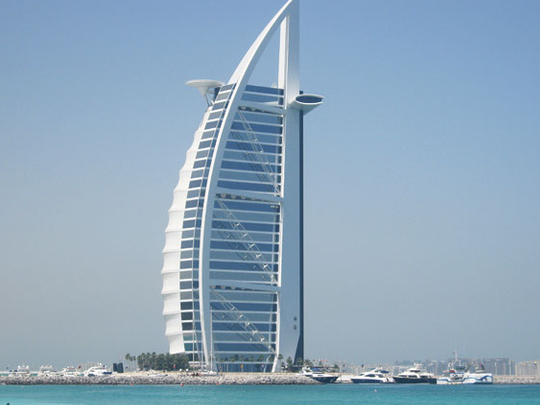
Dubai: Dubai continues to retain its position as a leading tourist destination, with the number of hotel guests increasing by nine per cent during the first half of this year.
According to the Dubai Department of Tourism and Commerce Marketing's (DTCM) first half report, steady growth in guests has led to a six per cent increase in hotel revenue, which reached Dh6.9 billion.
"Despite the challenging conditions faced by the global tourism industry last year, Dubai was still able to achieve impressive results in terms of tourist arrivals, hotel revenues and tourism-related events," said Khalid Ahmad Bin Sulayem, director-general of DTCM, in a statement.
Upcoming supply
This year, the emirate saw a 16 per cent increase in rooms and seven per cent increase in the number of hotels, bringing the total number to 566. This increase in supply has meant that hotels are offering more competitive rates to keep up their occupancy.
"Because there have been a lot of hotel rooms added to the inventory, prices are becoming more attractive, which in turn attracts a lot more people to Dubai. Many people view the city as an affordable luxury destination," said Gassan Aridi, CEO of Alpha Tours.
Statistics from the Middle East Hotel Benchmark Survey conducted by Ernst & Young show that average room rates in Dubai, after staying steady at the beginning of this year between $237 (Dh870) and $252, decreased between May and July to an average of $150.
"Hotels in Dubai are still [expensive] by international standards. The correction happened and the ‘abnormal returns' are over. Competitiveness and efficiency are now the name of the game. Some of the satellite destinations that used to be marketed as ‘Dubai' will have to adjust their offering," Bin Mahmoud Chiheb, senior vice-president at Jones Lang Lasalle Hotels, said in a previous interview.
According to the DTCM, hotels sustained their occupancy rate of 71.7 per cent despite the increase in the number of hotel rooms. Meanwhile, the occupancy rate of hotel apartments increased from 67.2 per cent last year to 68.8 per cent this year.
Bin Mahmoud said that hotels which mix their leisure and business components have the healthiest and most sustainable occupancy rates in the region.
The majority of Dubai's tourists in the first half of the year — 382,356 visitors — came from the UK.
"Dubai is a very well- known tourist destination in the UK. Frequency of flights and good offers to the customers make it an attractive destination. There is also more than 40 per cent repeat clients. We have also seen an increasing market from Russians and German tourists," said Aridi.
However, a shift is slowly taking place. Visitors from the GCC registered a 20 per cent increase to 494,309 during the first half of this year, while the number of Asian guests increased by 17 per cent.
Of all the Arab countries, the Kingdom of Saudi Arabia topped the list, with 227,382 guests.












